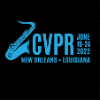The computational power of a compute model determines the class of problems it can solve. Automata theory allows describing the computational power of abstract machines (automata) and the problems they can solve. At the top of the Chomsky hierarchy of formal languages and grammars are Turing machines, the most powerful automata, which resemble the concept on which most modern computers are built. Here, we investigate the computational power of particle methods, a well-established class of algorithms with applications in scientific computing and computer simulation. Although particle methods can be interpreted as automata based on their formal definition, their computational power has so far not been studied. We address this by analyzing Turing completeness of particle methods. In particular, we prove two sets of restrictions under which a particle method is still Turing complete, and we show when it loses Turing completeness. This contributes to understanding the theoretical foundations of particle methods and provides insight into the powerfulness of computer simulations.
翻译:摘要:计算模型的计算能力决定了它能解决的问题类别。 自动机理论允许描述抽象机器(自动机)的计算能力和它们可以解决的问题。在Chomsky形式语言和语法的顶部是图灵机,最强大的自动机,类似于当今大多数计算机的概念。在这里,我们研究了粒子方法的计算能力,这是一种在科学计算和计算机模拟中应用广泛的算法类。虽然粒子方法可以根据其形式定义解释为自动机,但他们的计算能力迄今为止尚未被研究。我们通过分析粒子方法的图灵完备性来解决这个问题。特别是,我们证明了两组限制条件,使粒子方法仍然是图灵完备的,并展示它何时失去了图灵完备性。这有助于理解粒子方法的理论基础,并提供对计算机模拟的强大性的见解。


